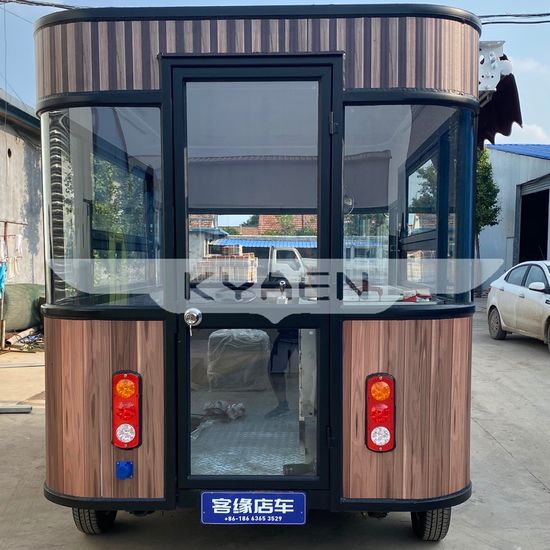10 years of experience as a food machinery equipment manufacturer
10 years of experience as a food machinery equipment manufacturer
Operating a mobile food vending business specializing in Chinese cuisine presents unique challenges and opportunities. Success hinges not just on delicious recipes, but on efficient daily management of the vending truck and its processes. Implementing practical routines can significantly streamline operations and enhance the experience for both vendors and customers.

Consistency begins each day with a thorough startup routine. A comprehensive inventory check is paramount. Vendors ensure all essential ingredients, sauces, key small materials like disposable chopsticks, napkins, containers, and condiments are fully stocked and organized within easy reach. Simultaneously, confirming that cooking gas levels are sufficient prevents mid-service disruptions. Giving all surfaces, cooking equipment, and storage areas a meticulous pre-opening clean sets a high standard for hygiene and readiness.
Efficiency during peak hours is crucial. Thoughtful ingredient pre-preparation done safely off-site or in designated prep areas before opening makes a significant difference. Tasks like pre-chopping vegetables, pre-cooking rice or noodles, portioning meats, and organizing small pre-packaged items save valuable time at the point of service. Keeping the cooking station uncluttered is vital. As one item is used, it’s immediately restocked or safely stored away. Designating specific, easily accessible spots for small materials like portion cups, lids, and utensils minimizes frantic searching and keeps the line moving.
Reliable equipment is the backbone of the operation. Proactive maintenance is key. Vendors establish daily checks:
Hygiene isn’t just a startup task; it’s continuous. Frequent handwashing is non-negotiable. Surfaces are wiped down regularly during service. Strict protocols are followed for safely handling raw ingredients away from cooked foods, and utensils are changed or sanitized often. Immediately replacing emptied small materials bins ensures constant availability.
Smooth customer flow directly impacts satisfaction and revenue. Clearly displaying the menu, prices, and any daily specials saves time on questions. Keeping hot food consistently hot and cold items properly chilled is essential for safety and quality. Having small materials well-organized and readily dispensed during packaging – napkins tucked into bags, chopsticks or forks included without fumbling, sauces added promptly – creates a polished, professional feel and speeds up service. Engaging pleasantly with customers while maintaining focus on order accuracy fosters loyalty. Implementing simple strategies like pre-folding commonly used takeout containers can shave seconds off each order.
An efficient end-of-day routine sets up the next day for success. Thorough deep cleaning of cooking surfaces, utensils, food contact areas, and exterior service windows is mandatory. All waste is safely disposed of away from the unit. Conducting an inventory count identifies small materials running low and ingredients that need restocking, allowing for timely ordering and preventing morning shortages. Securing the truck properly protects the investment. Finally, cash handling follows established security procedures.
Daily attention to safety cannot be overstated. Vendors are vigilant about fire safety near cooking equipment. Non-slip mats help prevent falls. Sharp knives are kept secured and handled with care. Organization extends throughout the truck. Investing in sturdy containers specifically designed for the mobile kitchen environment helps segregate different small materials like sauces, condiment packets, disposable ware, and food prep essentials. Labeling everything clearly saves time and prevents confusion during the rush.
By focusing on these practical daily habits – rigorous preparation, maintaining immaculate hygiene, optimizing workflow, careful inventory management of ingredients and small materials, proactive equipment checks, and fostering positive customer interactions – operators build a foundation for a smoother, more efficient, and ultimately more successful Chinese food vending business. Consistency in these simple yet vital tasks leads to reliable operations and satisfied customers.
